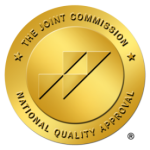At Revive Recovery Centers, we believe there are many roads to recovery and for millions of people, one of the most enduring and impactful frameworks is the 12-Step program developed by Alcoholics Anonymous (AA). Whether you’re just starting your journey or exploring support options, the 12 Steps offer a structured, community-driven approach to lasting sobriety and personal growth. While the 12-Step program is a great starting point and guide for achieving sobriety, we acknowledge that it takes more work than just following the 12 steps. Sobriety is a lifelong choice that every individual working the program must be committed to and continuously work towards in order to achieve it.
We also want to note that the 12-Step program puts a large emphasis on one’s relationship with God. We acknowledge that this may not be everyone’s personal beliefs, however, we are in the business of helping people achieve lasting sobriety and the 12-Step program is a tried and tested program that has helped many people get and stay sober. We strive to provide resources of many varieties to help those seeking lasting sobriety and we know that the 12-Step program is one method that may help you or a loved one struggling with addiction to alcohol.
What Are the 12 Steps of AA?
The 12 Steps are a series of guiding principles that help individuals overcome alcohol addiction and rebuild a healthier, more meaningful life. Rooted in honesty, accountability, and spiritual reflection, the steps encourage a shift from isolation to connection, from shame to acceptance, and from powerlessness to purpose.
According to https://www.aa.org/the-twelve-steps the 12-Steps are as follows:
- We admitted we were powerless over alcohol—that our lives had become unmanageable.
This first step is about acceptance. Recovery begins with acknowledging the reality of addiction and the chaos it brings to nearly every aspect of your life. - Came to believe that a Power greater than ourselves could restore us to sanity.
Individuals are encouraged to open themselves to hope and the idea that healing is possible with help, whether spiritual, communal, or both. - Made a decision to turn our will and our lives over to the care of God as we understood Him.
This step is about trust and surrender, recognizing that self-will alone isn’t enough to overcome addiction. While this step exhibits belief in God, we understand this may not be what everyone believes. Take step 3 as a guide to trusting in a higher power and acknowledging that without faith or spirituality, overcoming addiction may be harder for some. - Made a searching and fearless moral inventory of ourselves.
A deep reflection on past actions, behaviors, and patterns. This is where self-awareness begins to grow during the recovery process. - Admitted to God, to ourselves, and to another human being the exact nature of our wrongs.
Sharing your truth out loud brings healing. This step builds honesty, vulnerability, and accountability. This step opens the door for tough but necessary conversations with loved ones.
- Were entirely ready to have God remove all these defects of character.
Readiness to change is key. It’s a declaration of willingness to grow, evolve, and let go of destructive traits.
- Humbly asked Him to remove our shortcomings.
Humility takes center stage here. It’s not about perfection, it’s about progress and grace. - Made a list of all persons we had harmed and became willing to make amends to them all.
Healing also means acknowledging the ripple effect of addiction and taking responsibility for harm caused. - Made direct amends to such people wherever possible, except when to do so would injure them or others. Making things right, where possible, helps rebuild trust and restore broken relationships. This is often one of the hardest steps for those in recovery. Tough conversations, opening old wounds in order to help heal the damage you have caused others is no easy feat but necessary nonetheless.
- Continued to take personal inventory and when we were wrong promptly admitted it.
Recovery is a lifelong journey. Ongoing self-checks help maintain honesty and accountability. This step is crucial for continued self-growth. - Sought through prayer and meditation to improve our conscious contact with God as we understood Him.
Spiritual practice, however you define it, becomes a daily source of strength, guidance, and peace. - Having had a spiritual awakening as the result of these steps, we tried to carry this message to alcoholics, and to practice these principles in all our affairs.
Recovery comes full circle as individuals give back, support others, and live a life aligned with their values.
The Power of the 12 Steps
At Revive Recovery Centers, we acknowledge the transformative impact of the 12-Step approach and encourage clients to participate in AA meetings during and after treatment. While not everyone takes the same path, we support each person’s individual journey, whether it includes AA meetings, secular alternatives, or clinically guided therapy.
Many of our clients find that incorporating the 12 Steps alongside professional treatment creates a strong foundation for sustainable recovery. It builds connection, strengthens character, and reminds you that you’re never alone.
If you or a loved one is struggling with alcohol addiction, help is available. Contact Revive Recovery today to learn your treatment options.





